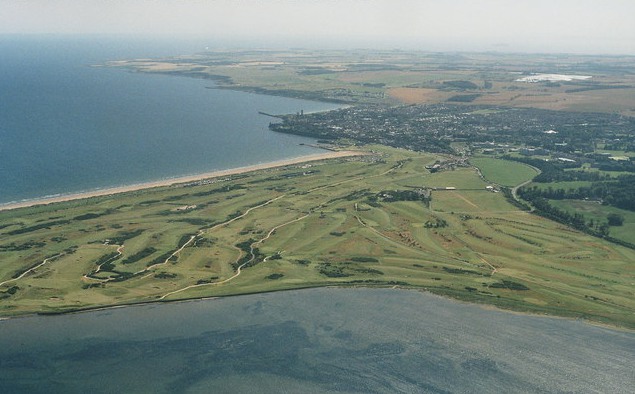All of the UK’s links golf courses could disappear by 2100
Related Articles
An alarming report from the UK’s leading environmental organisation charity has found that every links golf course in the UK is in danger of disappearing in less than a century due to climate change.
The Climate Coalition says golf faces an ‘unexpected threat’ from even a slight rise in sea levels, and Open Championship venues such as St Andrews and Royal Troon could be under water by 2100.
The report, which adds that six of the UK’s seven wettest years on record have occurred since 2000, predicts that “golf courses will crumble into the sea”.
“Climate change is already impacting our ability to play and watch the sports we love,” said the report, adding that extreme weather is a factor in declining participation and lost revenue.

Last year The Golf Business reported on the 455-year-old Montrose Golf Links, which was investigating the possibility of a crowdfunding campaign to raise £5 million to install rock armour alongside three of its seaside holes, following 25 years of coastal erosion.
Montrose Links to crowdfund for £5m to stop course falling into the sea
Chris Curnin, director at Montrose Golf Links, said: “As the sea rises and the coast falls away, we’re left with nowhere to go. Climate change is often seen as tomorrow’s problem – but it’s already eating away at our course.
“In a perfect storm we could lose five to 10 metres over just a couple of days and that could happen at pretty much any point.”
There was as much as 20 per cent less playing time for courses across the greater Glasgow area in 2016-17 compared to 10 years earlier, the report suggests.
“These findings should cause great concern among golf’s authorities,” said BBC golf correspondent Iain Carter.
“The game was founded on the links turf of the British seaside and provides golf in its most authentic form – as well as sums in excess of £75m to local economies on an annual basis.
“But the sport has recognised its precarious position at the hands of mother nature, with a number of green initiatives adopted in recent years.
“This report might also impact on discussions aimed at limiting driving distances because it highlights potential dangers in the maintaining the current trend of lengthening golf courses.”
“It is a fact that increased rainfall and extreme events are causing more disruption in recreational golf,” added Richard Windows of the STRI.
One in six Scottish golf courses are on the coast, where they are at the most risk of erosion due to rising sea levels, added the report.
Steve Isaac, director of golf course management at the R&A, said: “There is no question it is becoming a huge factor.
“I believe golf is more impacted by climate change than any other sport aside from skiing.
“We are feeling it now with increases in unplayable holes, winter course closures and disruption to professional tournaments.
“And the future threats are very real.”

Professor Piers Forster, director of the Priestley International Centre for Climate at the University of Leeds, added: “Climate change is already affecting the historic game of golf in its birthplace.
“Without cutting the carbon emissions driving climate change, sea levels will rise by over a metre and extremely wet winters will become the norm,” he warned.
“Many aspects of our lives including the game of golf would struggle to adapt to such a changed world.”
The Climate Coalition, which is made up of groups ranging from the National Trust and the Women’s Institute to WWF, the RSPB, Greenpeace and Oxfam, is releasing the report as part of its ‘Show The Love’ campaign, which celebrates things people love but that could be lost due to climate change.

























